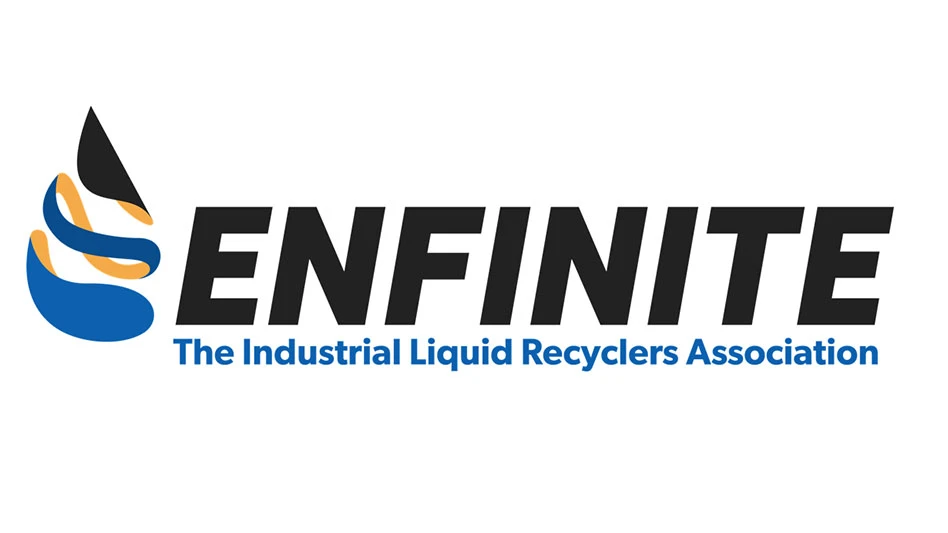 When describing either its core strategy or its operations, the executive officers of ReCommunity use words and phrases such as “pure-play,” “sole focus” and “maximizing recovery” to emphasize the company’s devotion to harvesting as much paper, plastic, metal and other recyclables as possible from the municipal solid waste (MSW) stream.
When describing either its core strategy or its operations, the executive officers of ReCommunity use words and phrases such as “pure-play,” “sole focus” and “maximizing recovery” to emphasize the company’s devotion to harvesting as much paper, plastic, metal and other recyclables as possible from the municipal solid waste (MSW) stream.
The Charlotte, North Carolina-based company has more than 30 facilities in 14 different states, but it is striving to accomplish the same thing in each of the geographic regions in which it operates.
“Our core expertise centers on complex recycling operations and materials management programs that significantly reduce landfilled waste through the most advanced recycling processes and technology,” says Jeff Fielkow, ReCommunity’s chief sales and marketing officer.
Acting locally, scaling nationally
The word “community” within ReCommunity’s corporate name can be traced to the origins of one of its original predecessor organizations.
ReCommunity was founded in March 2011 when, with the backing of several investment funds, the former FCR was spun off from Vermont-based Casella Waste Systems. FCR, founded in 1983, was originally known as Fairfield County Redemption, having been named after a county in Connecticut.
Sean Duffy and a business partner founded FCR in the 1980s “in response to bottle bill opportunities in the state of Connecticut,” Duffy says. More than 30 years later, he continues to seek recycling opportunities as the president and chief operating officer of today’s ReCommunity.
Duffy’s journey from a small recycling plant in one Connecticut county to the national footprint of today’s ReCommunity has occurred in several stages.
By the time FCR was acquired by Vermont-based Casella Waste Systems (and as part of Casella), it began to open additional material recovery facilities (MRFs) in New England and beyond.
In the early 1990s, after FCR embarked on a significant partnership with Mecklenburg County, North Carolina, the company moved its division headquarters to Charlotte.
Shortly after Duffy and the investment funds backing him created ReCommunity in early 2011 (and acquired the MRFs and related assets from Casella Waste Systems), the management team took steps to broaden the company’s geographic presence.
In late 2011, ReCommunity acquired additional MRFs in Michigan from Great Lakes Recycling, Roseville, Michigan, and also acquired recycling firm Hudson Baylor, which operated MRFs in Arizona, New York and New Jersey and a decasing operation in Connecticut.
As of mid-2014, ReCommunity has 29 MRFs in 14 different states and also operates four transfer stations. The company may vary its collection and processing techniques depending on the circumstances in a geographic region, but its core tactic is the same, Fielkow says: “ReCommunity works with our community partners to help recover as many resources as possible.”
Investing to win
As American curbside recycling programs have multiplied and expanded in the past three decades, haulers that pick up the materials have invested heavily in the single-stream method of collecting from homes and small businesses.
While single-stream advocates champion the increased collected tonnage figures, the term “single-stream” often is used derisively by paper mill buyers, plastic scrap consumers and other advocates of source-separated collection who see it as an intractable cause of quality problems.
 Duffy and ReCommunity’s leadership team, however, do not shy away from using the term single-stream to describe the processing systems of their MRFs, and they say they can run large scale single-stream MRFs while producing high-quality shipments of secondary commodities.
Duffy and ReCommunity’s leadership team, however, do not shy away from using the term single-stream to describe the processing systems of their MRFs, and they say they can run large scale single-stream MRFs while producing high-quality shipments of secondary commodities.
“We remain on the forefront of scaling state-of-the-art single-stream recycling facilities in communities throughout North America,” says Fielkow. “Over the years, we have continuously improved our performance by developing systems and processes to accept wider ranges of material while increasing efficiency.”
ReCommunity does not own a hauling fleet or any landfills and, thus, doesn’t bid for municipal collection contracts. Duffy and Fielkow say this “pure-play” position as a processor of recyclables is a critical advantage when it comes to meeting high quality standards.
“Focusing solely on processing and marketing of materials allows us to have an aligned interest with our municipal and commercial partners,” says Duffy. “Recycling advocates and municipalities want to know that every decision is made in order to maximize recovery and revenue, with the highest and best use in mind. Our business model allows this to happen.”
|
One-track mind ReCommunity, Charlotte, North Carolina, prides itself on being a “pure play” operator of material recovery facilities (MRFs) without any parent or subsidiary companies that either haul or consume scrap materials. “There are many benefits to a ‘pure-play’ strategy,” says Sean Duffy, president and chief operating officer of ReCommunity. “The largest benefit may be that being a pure-play company is a huge differentiator. Focusing solely on processing and marketing of materials allows us to have an aligned interest with our municipal and commercial partners,” comments Duffy. “Most of our competitors have conflicting business lines and, thus, conflicting economics for recycling,” Duffy continues. “This helps ReCommunity from a financial perspective but also from a community partner standpoint.” He adds, “Our primary source of revenue is from the stable of secondary commodities, so we have to focus on every single product. We do residue audits regularly and scrutinize the magnets and eddy currents and screens to ensure we are getting maximum recovery. Residue is a very large expense for us. We’re trying to minimize it.” This focus on operations helps lead to best practices, Duffy says. “What we do, in short, is safely and efficiently sort material in clean and neat facilities. We maximize the marketing of commodities with the highest quality standards and constantly focus on being innovative in order to be the best in our industry.” |
The narrow focus goes back to the Fairfield County Redemption era, according to Duffy, when safety, quality and productivity were identified as core values—ones that remain in place to this day. “All our plant managers understand that’s what our focus is,” he continues.
Duffy and Fielkow say ReCommunity’s status as a “pure-play” operator of MRFs allows it to focus on the quality of its single-stream plants to an extent that some of its competitors cannot.
“Because our sole focus remains on generating economic, environmental and social benefits for our community partners, we consistently and significantly outperform competitors in key performance areas,” Fielkow says.
The performance metrics result from research and investments in equipment and technology, he adds. “We continuously invest in the most advanced processing technologies to maximize the volume and quality of recyclables for our partners,” Fielkow says.
Education is another key, according to Duffy, who notes that ReCommunity MRFs often come with attached education centers and try to be accommodating to public tours. “The effort has to be put into education,” he says. “We work to promote the ‘dos and don’ts’ of recycling, and offer information at www.ReCommunity.com/Education for residents interested in learning more about recycling.”
The scale achieved by ReCommunity, which processed 1.7 million tons of recyclables in 2013, also helps it on the sales side. “We build long-term partnerships and supply agreements with key end markets and buyers for all products without any restrictions,” Duffy says.
Risk management
When Duffy or Fielkow are asked about any number of recycling-related issues and how ReCommunity can differentiate itself, the answer often comes back to its “pure- play” status as a MRF operator without the hauling, landfilling or recycled-content manufacturing operations that are common to many of its competitors. (See the sidebar “One-track mind” on page 46.)
The strategy, however, does not immunize ReCommunity from being subject to the many risks that can befall companies participating in the turbulent secondary commodities sector.
One source of turbulence has been China’s Operation Green Fence. (See the sidebar “The grass might be greener” on page 47.) Another involves the changing mix of materials being put into residential recycling bins.
“Over the last few years, the industry has seen dramatic changes in the residential material mix,” says Fielkow. “Most notably, consumer preference and behavior within the packaging industry has caused an increase in flexible packaging, which is displacing heavier packages and reducing the amount of printed paper.”
Fielkow says ReCommunity is trying to address such changes through interaction with other links up and down the supply chain. “We are constantly studying consumer behavior trends and reimagining what the future stream will look like,” he comments. “In this regard, we work with the entire supply chain (manufacturers, brand owners, retailers, municipalities and end markets), so we are all aligned on planning for and recovering as much of the future recycling stream as possible.”
Volatile commodity pricing is another challenge that can quickly ruin the bottom line of a recycling company. “We utilize many financial and operational solutions to soften the impact of strong and weak markets, both for our company and community partners,” says Duffy. “These include hedging strategies, risk mitigation, floor pricing and conservative planning.”
These methods have allowed ReCommunity and its predecessor companies to retain not only a better balance sheet but also the goodwill of its customers, Duffy says. “We are proud to have never turned away a load or broken a contract in 30-plus years, which includes many down markets,” he adds.
After more than 30 years in the industry, Duffy says he has few doubts that ReCommunity will continue to face issues and unexpected events that will challenge veteran and energetic young managers alike.
“Cyclical fluctuations are normal in the recycling industry,” Duffy comments. “From a financial and risk perspective, it is imperative that companies and municipalities prepare for this as best as possible.”
Other challenges include extended producer responsibility (EPR) laws that can vary from state to state and rising wages that can affect the profitability of individual MRFs. When it comes to EPR, Fielkow says, “We remain open to many different creative public and private funding solutions,” and he points to Wal-Mart’s Closed Loop Fund as a recent intriguing example.
“There are many ways to help improve recycling infrastructure and recovery,” Duffy says, “however, the devil is always in the details. As such, we try to engage with stakeholders as often as possible to provide insight, advice and opinions.”
Despite the challenges, Duffy and Fielkow are optimistic that ReCommunity has been set up in a way that will allow it to survive and prosper.
“Integrity and reliability are the foundation of our reputation, which is illustrated in our record of renewing all but one major municipal contract over 30 years of service to our recycling partners,” Duffy says.
His recycling journey has now lasted 31 years, Duffy notes, but he continues to focus on one day at a time. “Would I have thought 30 years ago I would be helping to operate more than 30 locations? No, but I never really set a goal. I still love what I do. I get up every day and try to figure out what we can do better.”
|
The grass might be greener The increased vigilance of Chinese customs and environmental agencies to scrutinize inbound shipments of recyclables, known as Operation Green Fence, has caused operators of material recovery facilities (MRFs) to reassess their established sorting systems. Jeff Fielkow, executive vice president of ReCommunity, Charlotte, North Carolina, says Operation Green Fence, launched in early 2013, has affected the recycling market in numerous ways. “It is no secret that China’s Operation Green Fence has drastically impacted our industry and company,” he comments. The initiative “was intended to curtail contaminated or wet bales of plastics, fiber and scrap metal,” Fielkow says. “In order to achieve their goals, the Chinese government announced they would inspect every bale and container of recyclable material imported into the country and would reject any shipment that contained 1.5 percent or more of contaminants and/or moisture.” Among the results, Fielkow comments, are “downward pricing pressure on both the fiber and plastic markets [and] additional operating expenses in order to meet the new industry standards.” Fielkow adds, “ReCommunity has always focused on quality as one of its core principles, and as a result we have increased bale inspections by a multiple of three or four to ensure bales have minimal contaminants and meet end market expectations. Also, we have placed additional quality control workers throughout our MRFs to help prevent any contamination before material is baled.” The added costs may be unwelcome, but Fielkow says he does see an upside. “Looking long term, we think Green Fence will be beneficial to the domestic recycling industry because it will ensure that the same standards are consistently met—that means quality resources that end markets can use,” he states. “Additionally, we think it is likely that the new policy will help stimulate domestic jobs because of new opportunities.” |
The author is the editor of Recycling Today and can be contacted at btaylor@gie.net.
Photos: Ashley Latham

Explore the July 2014 Issue
Check out more from this issue and find your next story to read.
Latest from Recycling Today
- Greenville, Mississippi, launches aluminum can recycling program
- Cotton Lives On kicks off 2025 recycling activities
- Georgia-Pacific names president of corrugated business
- Sev.en Global Investments completes acquisitions of Celsa Steel UK, Celsa Nordic
- Wisconsin Aluminum Foundry is a finalist for US manufacturing leadership award
- MetalX announces leadership appointments
- Sofidel agrees to purchase Royal Paper assets
- US Plastics Pact report charts expansion path for recycled content in packaging





